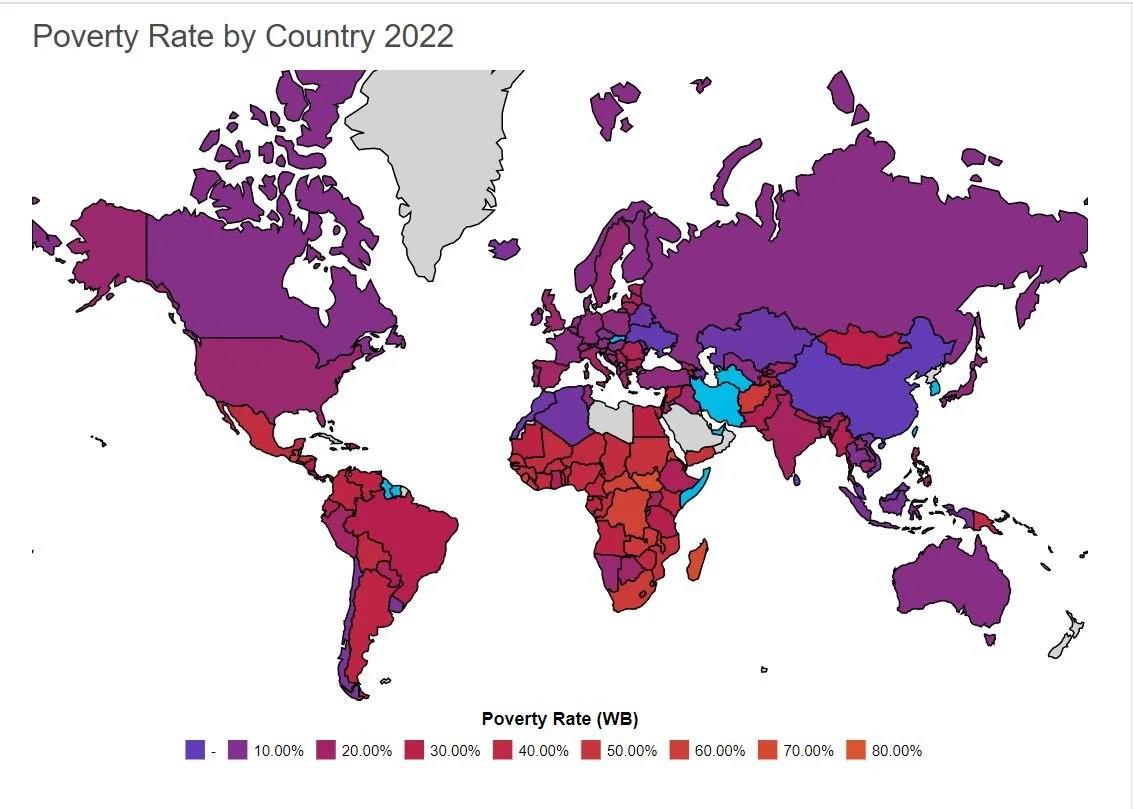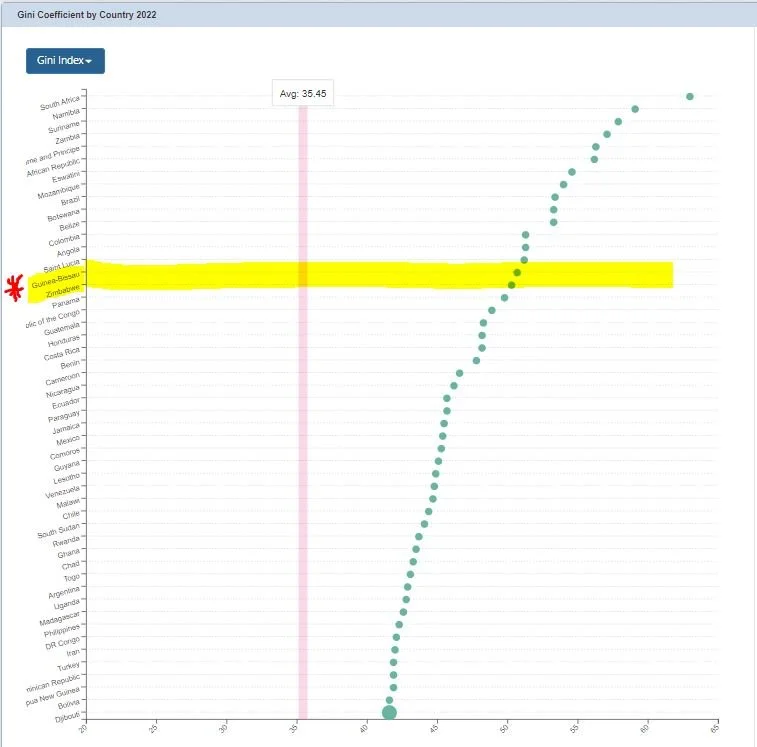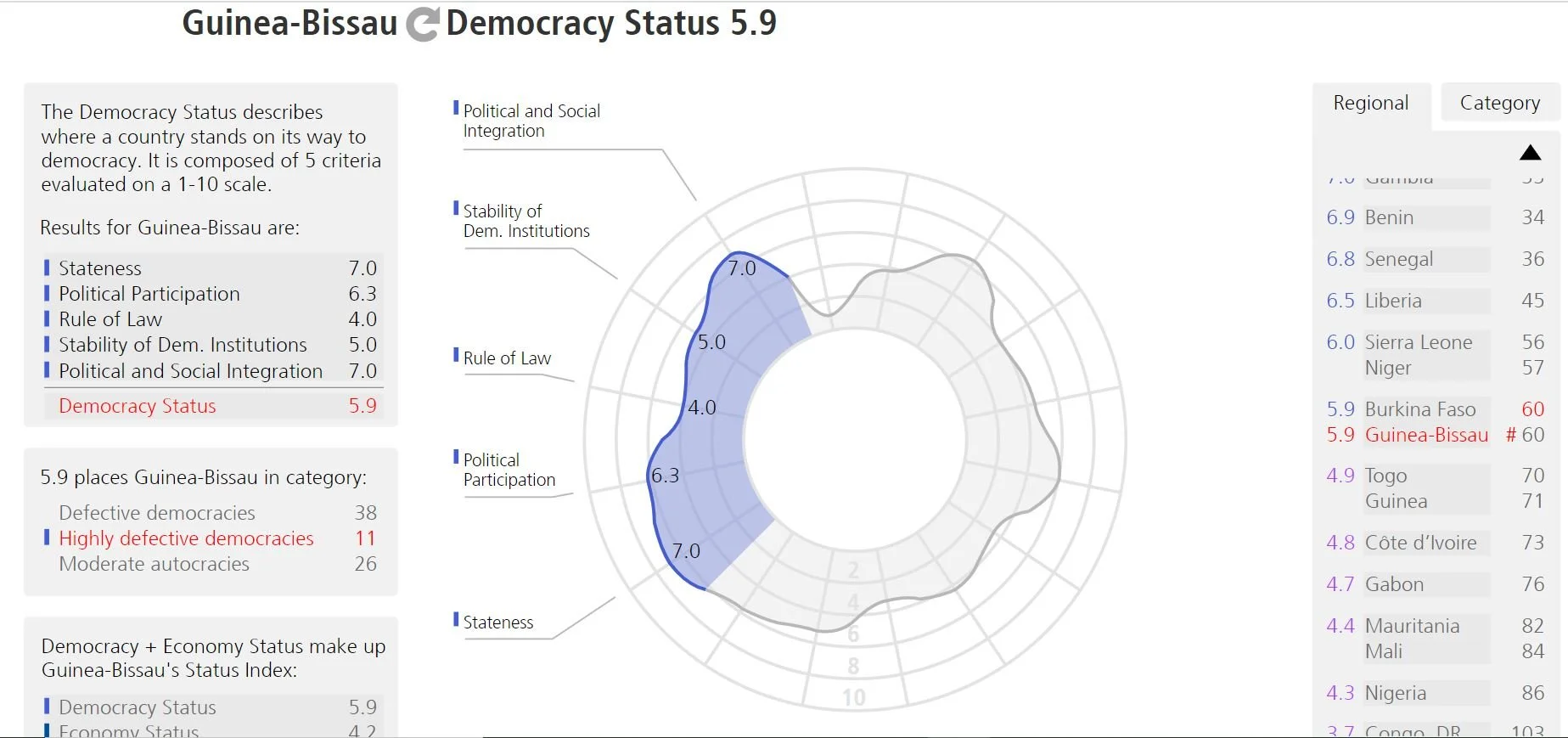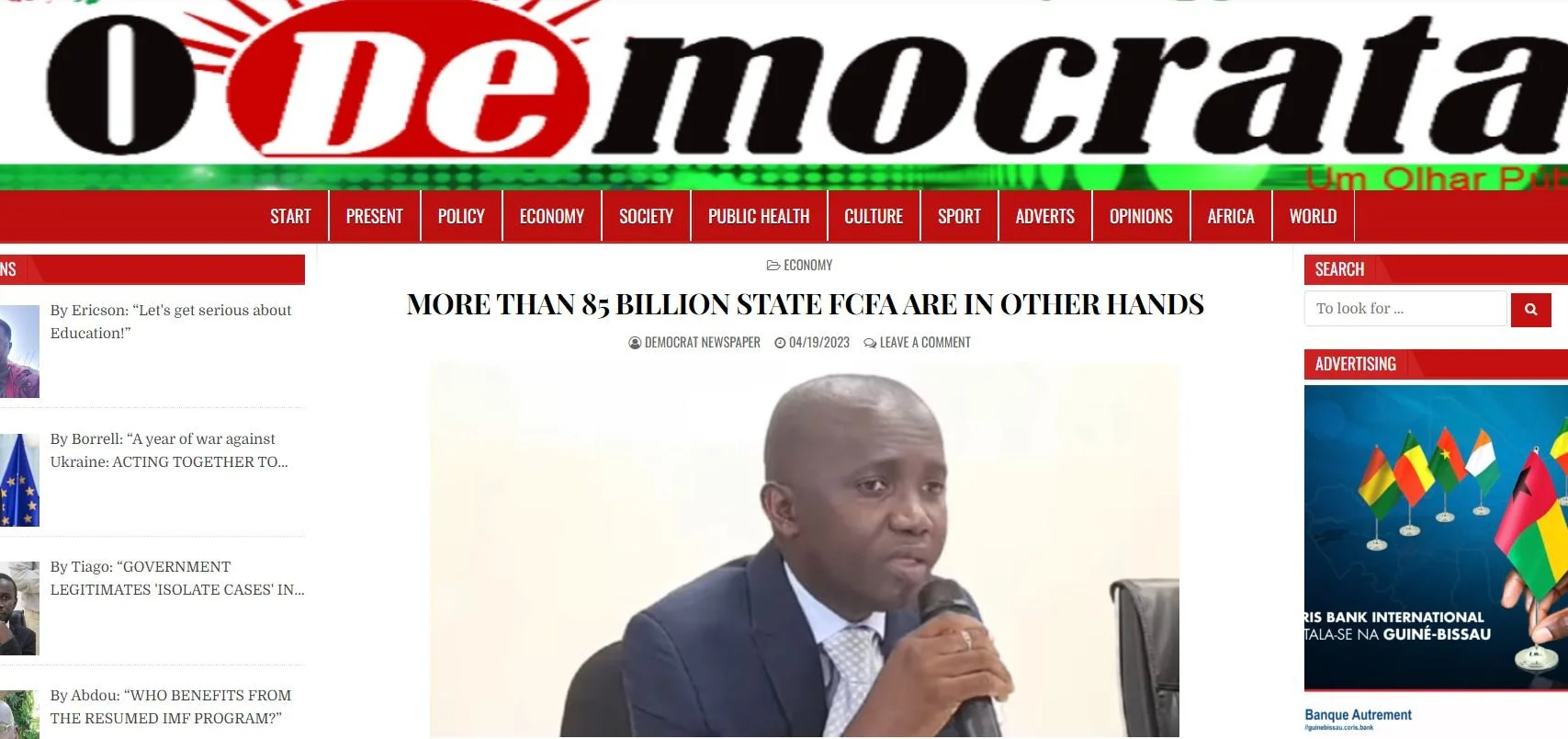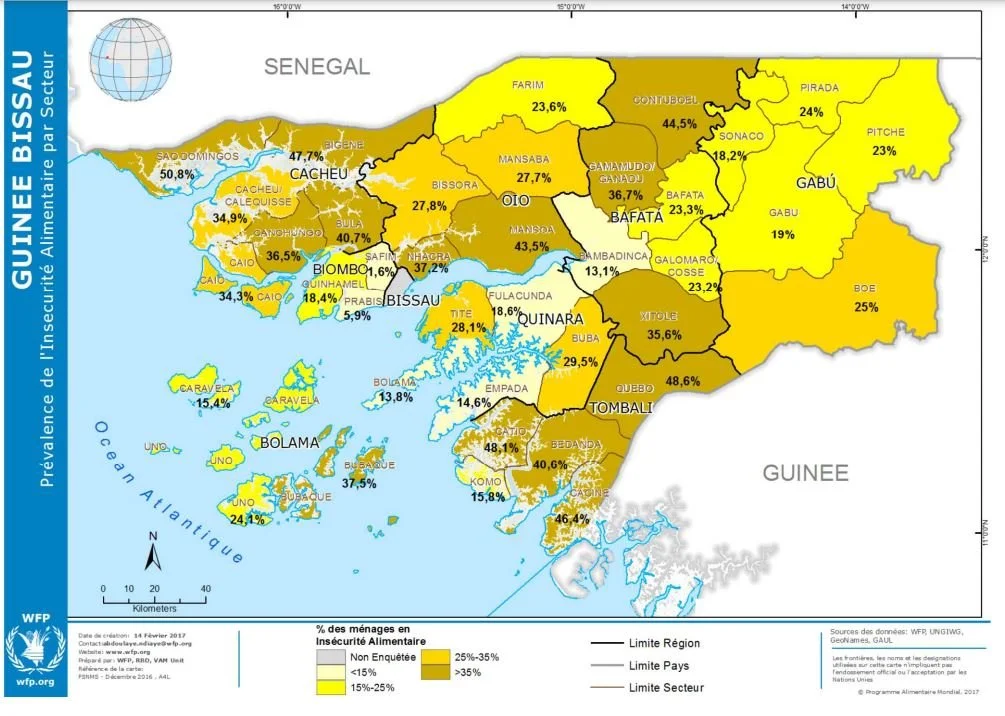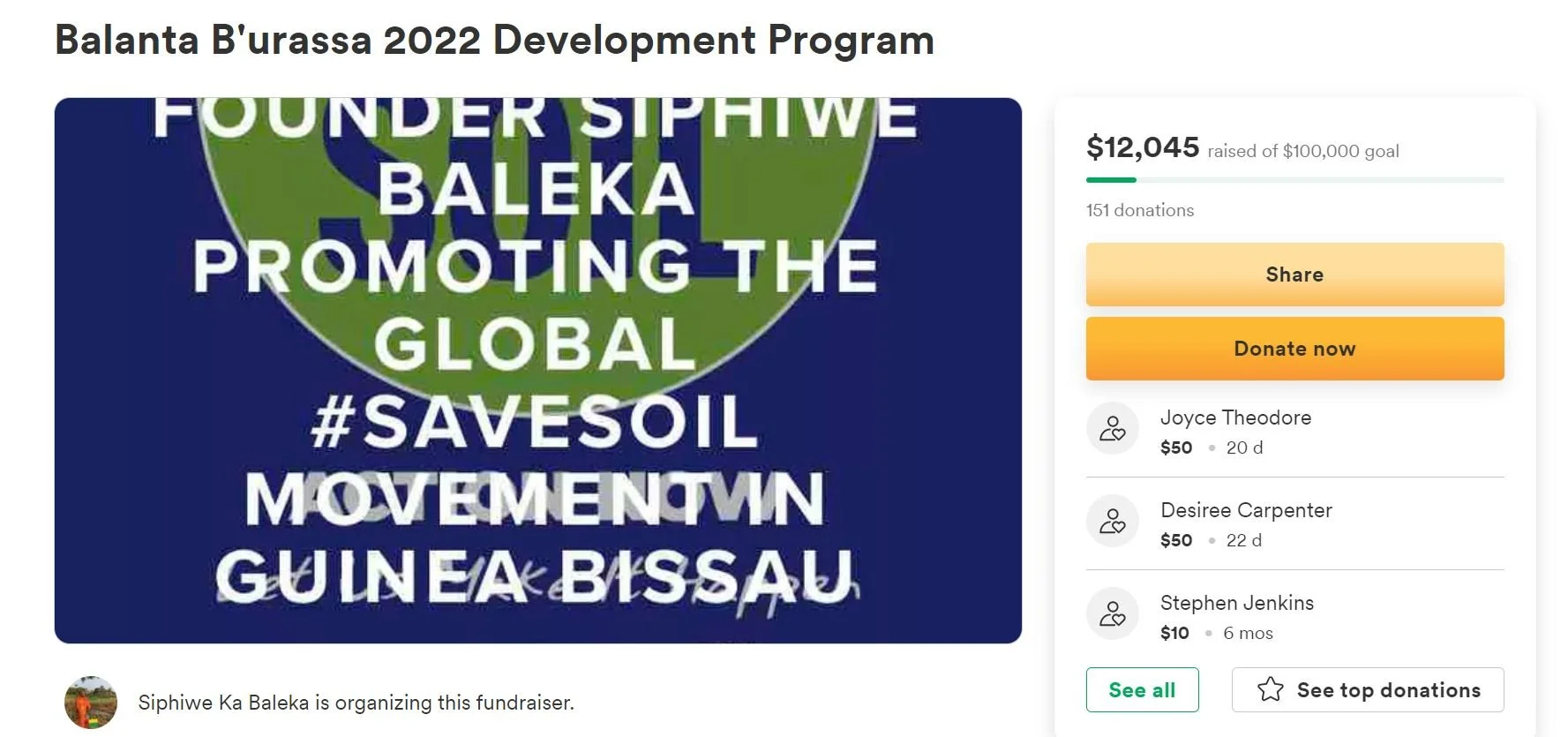Compiled by Siphiwe Baleka, Founder,
Balanta B’urassa History & Genealogy Society in America
Guinea-Bissau is one of the least developed countries in the world, ranking 178th out of 189 countries on the Human Development Index in 2019.
In 2021, the country was labeled the 27th most fragile nation in the world, according to the 2021 Fragile State Index (The Fund for Peace 2021).
Guinea Bissau is the 4th poorest country in the world with a 69.3% poverty rate, the highest extreme poverty rate of all countries in Western Africa.
The COVID-19 pandemic resulted in an additional economic decline of 1.4 percent in 2020, further stunting economic and human development.
GROSS DOMESTIC PRODUCT (GDP)
In 2019, GDP per capita purchasing power parity was 1,650 USD, ranked 174th out of 186 countries. Between 2000 and 2019 the country’s real GDP growth averaged 3.4 percent, below sub-Saharan African and West African Economic and Monetary Union (WAEMU) countries, which recorded growth averages of 4.5 and 4.4 percent in the same period (World Bank Group 2020b).
Population is projected to rise from 1.9 million people in 2019 to 3.1 million by 2040.
Extreme poverty will rise to 1.8 million people in 2040.
An average economic growth of 9.2 percent (+6 percent above the historical average) or higher is required to stabilize absolute poverty in 2040 at the 2019 level.
EMPLOYMENT
A recent UN country analysis suggests that over 75 percent of employment in Guinea-Bissau is in the informal sector, and IMF estimates that 40 percent of the economy is informal (UN Guinea-Bissau 2020; Medina, Jonelis, and Cangul 2017).
Data from a Harmonized Living Conditions Survey in 2018 report that 52 percent of those working in the informal sector in Guinea-Bissau are considered poor, in contrast to only 25 percent in the formal sector (Ndoye 2020). The informal economy often generates little to no government revenues.
Agriculture comprises 69 percent of GDP, with over 90 percent derived from cashew nut exports that provide direct or indirect income to 85 percent of the population (Guinea-Bissau 2025: Strategic and Operational Plan for 2015–2020, Terra Ranka)
HEALTH
According to the Global Health Security Index 2019, Guinea-Bissau has the second most fragile health system in the world (Cameron, Nuzzo, and Bell 2019).
Despite its reliance on agriculture, the population suffers from high malnutrition and food insecurity rates, with 18.9 percent experiencing undernourishment (Baquedano et al. 2021).
Stunting in children under five was at 26.8 percent in 2019, and acute malnutrition (wasting) was 7.3 percent (United Nations Children’s Fund 2021; UNICEF, WHO, and World Bank Group 2020).
Infant mortality rates in 2017 were at 49 per 1,000 live births, the highest amongst all SIDS countries albeit ranked only the 10th highest in Western Africa. Malaria, tuberculosis, and diarrheal diseases are the leading causes of death among children (United Nations Children’s Fund 2021).
Guinea-Bissau’s maternal mortality rates are also among the world’s highest (900 deaths per 100 thousand live births). Despite the scale of the problem, the government allocated less than 1 percent of its health budget to women’s and children’s health in 2013 (United Nations Integrated Peace Building Office in Guinea-Bissau and Office of the United Nations High Commissioner for Human Rights 2017).
The Global Health Security (GHS) Index is the first comprehensive assessment and benchmarking of health security and related capabilities across the 195 countries that make up the States Parties to the International Health Regulations (IHR). According to the Global Health Security Index, Guinea Bissau ranks just 186th out of 195 countries.
INCOME INEQUALITY
Guinea-Bissau has one of the most unequal distributions of income, with a Gini coefcient of 0.51 in 2022 (ranked 1st among countries in Western Africa and 6th highest among small island developing states).
Many households in Guinea-Bissau generally do not have a bank account or utilize bank services, with access to a bank account in 2013 below 1 percent of the population.
In 2019, 27.9 percent of the population had access to electricity countrywide compared to only 10.2 percent in the rural areas of the country (50.2 percent in urban settings). These figures are far below the 2010 to 2018 average for WAEMU countries, which recorded 17 to 80 percent of access in urban settings and 20 percent in rural areas (World Bank Group 2020b). The availability and cost of electricity is concerning, with the average cost of electricity in Guinea-Bissau (USD 0.42/kWh) amongst the highest in sub-Saharan Africa (World Bank Group 2020a, World Bank Group 2020b).
Additionally, poor access to internet (only 10 percent of the population had access to internet in 2018) further diminishes the ability of businesses and individuals to benefit from the digital transformation (UN Guinea-Bissau 2020).
In 2020, only 24 percent of the nation had access to the highest standard of safely managed drinking water sources and 12 percent of households had access to safely managed sanitation (World Health Organization and United Nations Children’s Fund 2020).
The WHO/UNICEF Joint Monitoring Programme for Water Supply, Sanitation and Hygiene (JMP) data for the Total Population of Guinea Bissau.
The WHO/UNICEF Joint Monitoring Programme for Water Supply, Sanitation and Hygiene (JMP) data for the Urban Population of Guinea Bissau.
The WHO/UNICEF Joint Monitoring Programme for Water Supply, Sanitation and Hygiene (JMP) data for the Rural Population of Guinea Bissau.
EDUCATION
One-third of children between 6 and 11 years old have never attended school (Só et al. 2018; World Bank Group 2020b).
Much of the education workforce lacks the necessary knowledge and proper understanding of the materials covered by the national curriculum, while many schools lack adequate learning materials for students. In addition, teacher strikes are persistent in the country, negatively impacting students through constant school closures (World Bank Group 2020b).
GOVERNANCE
Out of the six main indicators used to assess the quality of governance by the World Bank in its Worldwide Governance Indicators analysis (where 0 percent corresponds to the lowest ranking, least effective, and 100 percent to the highest ranking, most effective) Guinea-Bissau consistently scores around the lowest of all countries. In 2019, Guinea-Bissau scored 6.2 percent for the Government E!ectiveness indicator, and 5.2 percent for Control of Corruption. For Rule of Law and Political Stability, it scored 7.6 and 24 percent (World Bank Group 2019).
According to the Bertelsmann Stiftung’s Transformation Index (BTI) 2020 Country Report on Guinea Bissau:
“Public officeholders who benefit illegally from their positions are rarely held accountable by legal prosecution when they break the law and engage in corrupt practices. This concerns all the top government officials, including the president. Public contempt depends on relatedness and the reputation of the officeholder. As a rule, corrupt officials are widely perceived as getting away with their crimes without consequences. Usually, officeholders who break the law are dismissed, rather than prosecuted. Members of the government accused of corruption often return to official positions after an interim. Conflicts of interest and ethical misconduct are often not addressed.”
According to the United Nations Periodic Review in 2019, instability is reflected in the 2018 Ibrahim Index of African Governance, in which Guinea-Bissau ranks forty-second out of 54 African countries. It has fostered neither economic growth nor coherent social policies and has resulted in Guinea-Bissau being dependent on the international community for assistance in the economic, health and education sectors.
DEMOCRAT NEWSPAPER 04/19/2023 - “The National Cell for the Processing of Financial Information (CENTIF-GB) revealed on Tuesday, April 18, 2023, that risk assessment data on the processes that were reviewed, both at the Public Ministry and at the Judiciary Police, indicate that Guinea-Bissau Bissau is losing a lot and that 85 billion and 853 million of State assets could be in the hands of others.
The revelations were made by the president of CENTIF, Justino Sá, at the opening of the three days of training (18, 19 and 20) on matters of financial investigation, accusations and convictions for crimes of money laundering and financing of terrorism, held at the National School of Administration (ENA), aimed at actors in the criminal chain.
Justino Sá explained that the seminar was held as part of the implementation of the recommendations of the mutual risk assessment report that Guinea-Bissau was subject to in 2020 and 2021, arguing that the CENTIF should equip the law enforcement staff with tools that allow them to fulfill and fully perform its functions.
Justino Sá asked the Attorney General of the Republic to transform the office for the fight against corruption and economic rights and adopt the principle of mobility of magistrates, being a very sensitive office, having defended the specialization of magistrates so that Guinea-Bissau be more sensitive to the phenomenon of the fight against corruption.
According to Justino Sá, the amounts referred to are those found in the processes that were investigated from 2013 to 2018, revealing that the country could have lost 100 billion CFA francs.
Faced with this situation, Justino warned magistrates that they have a very important role to play in the fight against money laundering and terrorist financing.
He said that this situation should not only be a concern for the CENTIF, but also a national concern, especially for judges who have the mission to work for the credibility of justice.
The president of the CENTIF stressed that one of the shortcomings that the cell pointed out in the mutual evaluation was effectiveness, because “there was no conviction for the crime of money laundering and financing of terrorism in Guinea-Bissau, as well as the confiscation of assets of any corrupt people or traffickers.
In turn, the Attorney General of the Republic, Edmundo Mendes, said he hoped that the seminar would provide participants with the necessary tools to detect, investigate, prosecute and effectively condemn the actors of organized crime.”
By: Carolina Djemé
PUBLIC INVESTMENT
Public investment is almost entirely financed by external aid, with major donors including the UN System, the West African Development Bank, the World Bank, and the African Development Bank (World Bank Group 2016). More than 90 percent of the government’s health budget comes from international partners.
A continuation of historical trends will increase the human suffering and development burden in Guinea-Bissau.
THE IMPENDING FOOD SECURITY CRISIS COMING TO GUINE BISSAU
Globally around 24 billion tons of fertile soil and 27,000 bio-species are lost each year. Scientists are saying that by 2045, the planet will have 40% less food for 9.2 billion people and that there are only 40 to 60 harvests left before a critical global food shortage. According to the report Hunger in Guinea-Bissau: Causes and Prevention
“Food insecurity is the largest current concern for the Guinea-Bissau government. . . . Overall, 11% of Guinea-Bissau households are food insecure, though this figure spikes to as high as 51% in some areas. Food insecurity is the main cause of undernutrition, in addition to inadequate health services, poor water and sanitation, inadequate infant feeding practices and high illiteracy rates among women.
Most of the families in Guinea-Bissau that are involved in cereal farming, produce cereal for their own consumption. However, this is sometimes not enough to feed an entire family. Only 8% of families have enough cereal to cover their needs for one month and a half, with 48% having cereal stocks to cover just one month of food consumption. If the cereal that these families produce is ruined, more than half would not have anything to eat and would suffer from extreme food insecurity.
According to the Food and Nutrition Security Monitoring System, 28% of the population of Guinea-Bissau does not consume as many vitamins and nutrients as they need. Additionally, in 2019, Guinea-Bissau ranked 99th out of 117 in a study about countries with increased rates of food insecurity. This rank means that Guinea-Bissau has a severe problem with both hunger and malnutrition.”
PREVALENCE OF FOOD INSECURITY BY SECTOR IN GUINEA BISSAU
The Proteus Global Food Security Index ranks Guinea Bissau 148th out of 160 countries. Even though most families are involved in growing rice for their own consumption, only 48% have enough cereal stocks to cover just one month of food consumption, resulting in a dependence on imported food, including rice. In 2020, Guinea-Bissau imported $52.2M in rice, becoming the 86th largest importer of rice in the world. At the same year, rice was the 1st most imported product in Guinea Bissau. Guinea Bissau imports rice primarily from: Pakistan ($24.9M), China ($17.2M), India ($4.26M), Senegal ($3.77M), and United States ($726k).
https://wits.worldbank.org/CountrySnapshot/en/GNB/textview
WHAT THIS MEANS
During the COVID pandemic, Bissau-Guinean economist Aliu Soares Cassama stated, “Our economy has had a deficit in the trade balance for a long time. In other words, we import more and export less. We know that economic agents do not have purchasing power due to the total paralysis of the State, and this situation will further complicate the economic weakness that the country is experiencing.” Because of the global soil extinction crisis and the impending global food shortages, Guinea Bissau, for all the reasons indicated above, will be one of the most vulnerable countries on the planet for starvation if nothing is done now to increase the organic content of its soil and diversify agricultural production to domestic food consumption.
WHAT CAN BE DONE? #SAVESOIL
For any soil to be agriculturally potent, it must have a minimum organic content of 3 to 6%. The average soil organic content of the United States is 1.4%, for Europe 1.2%, for India 0.6% and for Africa 0.3%. No data on the organic content of Guinea Bissau’s soil has been recorded.
Due to the severity of soil extinction and the food crisis which will be devastating to the entire world, a global #savesoil campaign was launched. Save Soil is a global movement bringing together people and leaders to restore Soil Health by instituting national policies worldwide toward increasing the organic content in cultivable Soil. On March 21, Indian mystic Sadhguru embarked from London to India on a 100 day campaign, traveling more than 30,000 km to 26 countries by motorcycle in order to spread awareness and to mobilise 3 billion people to use their voice and give democratically elected leaders and governments a mandate to institute national policies toward increasing the organic content in cultivable soil. After just 28 days, 72 nations have signed policy agreements. Sadhguru was also the keynote speaker at the 15th session of Conference of Parties (COP), that convened in the Ivory Coast from May 9-20. It was organised by the United Nations Convention to Combat Desertification. Leaders from 170 countries attended, including a high-level opening segment, a Heads of States Summit, round tables and interactive dialogue sessions among ministers and other high-ranking officials.
Learn More about the Save Soil movement in Guinea Bissau
Siphiwe Baleka is working to spread awareness on the need to create a comprehensive soil testing program in Guinea Bissau. Because of the current status of Guinea Bissau as described above, you can understand why constant fundraising is needed to help solve the problems in Guinea Bissau. We are the only group of Afrodescendants of Guinea Bissau origin that have a presence on the ground here in Guinea Bissau. You can help us help make a difference in Guinea Bissau by contributing to the


